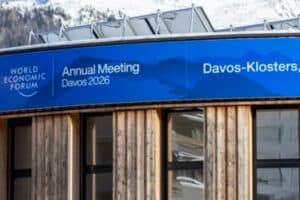Corruption, government incompetence and policy paralysis have plunged South Africa's economy into a crisis.

Even as a wave of hope and optimism swept over the country yesterday, thanks to the heroes’ welcome for the all-conquering Springboks, experts were warning that South Africa is on the brink of economic collapse, brought about by corruption, government incompetence and policy paralysis.
The government and broader society needed to radically think about how the economy would function if it was to grow and become the engine for job creation, they said.
Credible growth strategy
Senior researcher at the Southern Centre for Inequality Studies at Wits University Thokozile Madonko said the medium-term budget policy statement (MTBPS) by Finance Minister Enoch Godongwana this week highlighted that the government still didn’t have a clear indication – even from National Treasury – on what the plan was to put forward a credible growth strategy.
ALSO READ: Airbnb pumped billions into SA’s economy in 2022
The MTBPS revealed that Treasury had doubled down on the existing path of austerity. However, this was unlikely to bring about growth in the economy and was especially unlikely to improve services.
“What we need to ask is, how can we achieve growth, and what is needed to achieve growth, given the structural constraints, Eskom, unemployment and problems with Transnet and other state-owned enterprises,” Madonko said.
What would tip the country over the brink “is to continue on the path that we have set in this MTBPS of further fiscal consolidation. It is unlikely to deal with our debt problems”, she said.
“It is unlikely to deal with our service delivery problems. In fact, I would argue strongly that it is going to make things much worse in the short term.”
ALSO READ: Expats’ skills can help our economy grow
Madonko added that South Africa needed a combination of thinking of sustainable economicexpansion to achieve a sustainable budget path.
Economy vs debt
Political analyst Arthur Shopola said the MTBPS had revealed what was happening in the economy was “a direct consequence of the neoliberal architecture … which elites have adopted since the dawn of democracy in our country”.
ALSO READ: Kieswetter estimates load shedding cost economy about R150bn
There was nothing logical about the decision to amend debt relief terms for struggling state power utility Eskom, “and this is not for the first time Eskom crushed the money owed by municipalities”, he said.
“The question is, what has the government done to assist municipalities to be able to collect enough revenue on their own so they can pay a score,” he said.
“What the minister did was to give us more problems and [leave] more questions than answers. Maybe we should try in our analysis to proffer some solutions – I think a contemporary solution to deal with this collapse that we’re facing … is to unplug the mining industry from the national grid.
ALSO READ: Economy lost momentum again in third quarter – BETI
“Eskom is not able to keep the lights on, so as a temporary solution, they can unplug the mining industry to allow the lights to be on,” said Shopola.
His radical belief was that mining houses should be independent of Eskom and generate their own power.
Mining sector
In February, the Minerals Council South Africa noted that mining’s contribution to gross domestic product (GDP) grew by four percent to almost R494 billion, keeping its percentage contribution to GDP at 7.53% (7.56%, 2021).
“We also need to enforce the social beneficiation agreements in the mining sector, because the mining sector is the bedrock of our economy,” Shopola said.
“Once you enforce the social beneficiation, where the state retains 60% of the benefits as the landowner, then the state will be able to have an increased and strengthened financial muscle to deal with many other issues that arise in the course of managing public resources.”
ALSO READ: Small-scale farming can transform township economy and protect food security
He said South Africa needed to relook and perhaps even change the business model of the state, to provide municipalities with sufficient powers to collect revenue on their own. Municipal revenue powers were currently very worrying as they did not allow them to deal with responsibilities given by the state or constitution.
“Most importantly, the state needs to create employment so people can pay municipal rates and for municipal services they are using. This is a combination of interrelated problems,” Shopola said.
“When you don’t create jobs, you really have to expect things like this crushing debt of billions because people cannot pay.”






